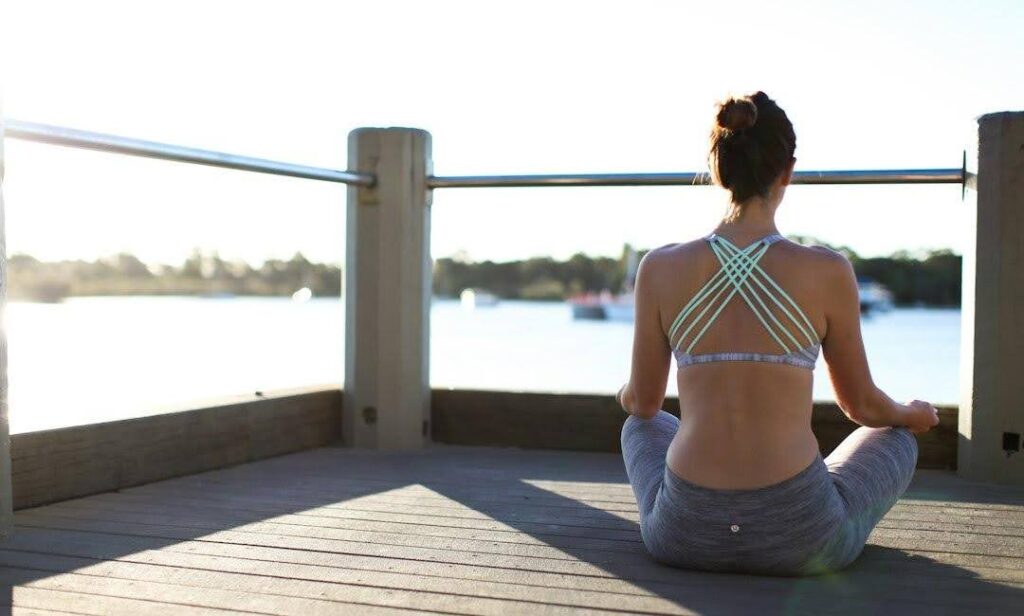
Self-Care Practices for Anxiety Relief
Self-care is vital for relieving anxiety. Eating a nutritionally balanced diet is crucial for both physical and mental well-being. Research has linked foods like salmon and walnuts, high in omega-3 fatty acids, to decreased anxiety levels. Staying hydrated and limiting stimulants such as caffeine can also help regulate mood and ward off anxiety. Exercise provides a natural release of tension and promotes relaxation. Spending time outside in nature or engaging in hobbies enjoyed alone or with others provide distraction from worries and foster calm. A relaxing evening routine including a warm bath, gentle stretches, and soothing music before bed makes for restful sleep and a refreshed mindset.
While self-care strategies can significantly help, those experiencing chronic, debilitating anxiety may require additional support. Talking with a medical or mental health professional can determine if underlying conditions contribute and identify the most effective treatments. Cognitive behavioral therapy focuses on recognizing and changing thought patterns and behaviors that exacerbate anxious feelings. If needed, short-term anxiety medication under a doctor’s guidance can smooth the path to positive lifestyle changes. With dedicated effort and potentially additional aid, anxiety’s troubling hold can be overcome to flourish fully.
While mindfulness and setting boundaries can effectively manage anxiety, not all find relaxation from meditation or yoga. Some discover calm through creative expression, spending time outdoors, or bonding with loved ones. Social support can alleviate anxious thoughts as meaningful connections provide perspective during difficult times. However, opening up requires vulnerability which does not come easily to all.
Resource: https://focus.psychiatryonline.org/doi/10.1176/appi.focus.20200042
For those struggling, it helps shifting focus from outward things far from our control onto inward strength within our power. Anxious feelings will come and go, but how we weather each storm grows steadier with practice. Small daily acts of self-care, as simple as deep breathing, remind us of our innate resilience. Taking life one moment at a time also reduces overwhelming larger stressors.
Rather than avoidance, challenging anxious beliefs with compassion empowers lasting change. As fears fade with gentle, repeated exposure, long-held tightness in the shoulders loosens. Over time, a calmer spirit emerges through caring for the heart as diligently as the restless mind. While anxiety cannot be stopped, its hold can weaken through patience and perseverance. By nurturing well-being from within, uneasy days gradually become less troubling.
Understanding Anxiety and Its Impact
Anxiety comes in many forms, affecting everyone differently. It is the most prevalent mental illness seen today. A racing heart or sweating could indicate stress, but other factors trigger anxiety too. Anxiety not only damages relationships with loved ones and friends, it sabotages health as well—ruining years of self-improvement efforts. Together, physical and mental symptoms feed off each other to degrade quality of life while burdening both. Symptoms like these notably reduce wellbeing, highlighting the importance of promptly recognizing and treating anxiety.

To adequately manage anxiety, understanding its diverse impacts is key. Comprehending how anxiety permeates our thinking—and substantially affects the body and health too—facilitates constructing lives to withstand this foe. By raising awareness about anxiety’s symptoms and effects, people can arm themselves with knowledge and aids to cope with mental illness while simultaneously improving their overall condition.
Anxiety differs from regular worries as it entails persistent fear, not just fleeting feelings. It involves dreading future events. For instance, nerves prior to a job interview represent a common worry, whereas overwhelming, disruptive fear signals an anxiety disorder.
Ways to Cope with and Reduce Anxiety
Self-awareness also plays a crucial role in coping with anxiety. It helps one identify anxiety triggers and patterns exacerbating feelings, granting understanding and control. Journaling emotions and thoughts during attacks fosters awareness, easing impacts.
Regular exercise benefits mental wellness according to health experts. Releasing endorphins and lowering stress through improved sleep, self-esteem, running, yoga, or dancing relieves anxiety. Deep breathing, meditation, and mindfulness center chaotic thoughts, cultivating inner calm amid life’s complexities. Incorporating such relaxation techniques develops clearer thinking and resilience against provocations.
Anxiety disorders’ seriousness necessitates professional assistance at times. Qualified therapists assist exploring challenging emotions scientifically and constructively. Medicine appropriately prescribed and monitored alleviates severe symptoms safely. Holistic treatment combining psychotherapy and medication whenever required most benefits wellbeing.
Managing anxiety successfully necessitates searching for expert guidance. Many experts believe that Cognitive Behavioral Therapy (CBT) is the optimum remedy for anxiety disorders. The key element of CBT is that it aims to modify adverse thought patterns and behaviors. Additionally, medications like SSRIs and beta blockers are commonly prescribed to alleviate anxiety symptoms and reinforce the impacts of therapy. By combining the effect of various pharmaceuticals on the disorder with conversational therapy, anxiety is tackled both biologically and psychologically.
Support from mental health professionals assist persons evolve their own coping mechanisms and tactics that target specific anxiety-related triggers and responses. For example, a counselor could work with their client to create customized relaxation methods intended to be employed during times when anxiety levels are high. In this manner, an individual can feel both relaxed and confident. Realizing when expert help is necessary is crucial–particularly if anxiety signs persist or intensify, or interfere markedly with daily functioning. Swift intervention is beneficial for symptom administration and quality of life advancement.

A Guide to Relieving Anxiety Through Self-Care.
A balanced diet and sufficient water is indispensable for maintaining mental clarity and appeasing worries of an overanxious nature. Drinking an adequate amount of water throughout the day can moderate mood and cognitive execution. This is conducive to a calmer frame of mind. Self-care practices help in addressing anxiety. Most people don’t realize that.
Incorporating mindfulness practices like yoga or meditation into your daily routine can bring people remarkable relief from anxiety. These mindfulness techniques are not only good for living in the present moment, but they can foster an inner peace that helps protect against anxious thoughts. Practicing mindfulness regularly can help keep calm in the long run when dealing with anxiety as well as under pressure. However, it may take continued effort over time to build up one’s resilience to stressful situations.
Doing something creative to express yourself, whether through painting, writing, playing a musical instrument, or other art forms, can be an effective method for dealing with anxiety. Engaging in creative activities allows individuals to channel their emotions constructively and shift focus away from persistent worries. Partaking in artistic pursuits can lift oneself into productivity and leisure, which is conducive to relief. Most importantly, by achieving something through their creativity and thereby giving oneself an outlet for their pent-up emotions, people will feel good about their accomplishments as well as relaxed. They will see that they have the power to aid their own healing through developing their skills and talents.
Initially, Support groups can serve the important function of providing a safe and understanding environment for those affected by anxiety to share their experiences, worries, and triumphs. In the face of common problems, individuals who are battling with anxieties similar to their own can find company more readily available and be more secure about where life leads them. However, some may prefer seeking help through alternative means such as online support forums or individual therapy. One example remains a support group for people with social anxiety disorder where members may discuss their concern over social contact or cooperate on how to deal with it effectively.
Furthermore, progress made against anxiety often begins with small steps. Mutual understanding within support communities can cultivate a sense of belonging essential for easing loneliness. By connecting with those facing similar challenges, individuals deepen self-awareness through shared vulnerability. Take panic attacks and coping mechanisms – recounting personal struggles in a group provides solace through kinship in suffering.
Conquering anxiety demands a multidimensional approach combining expertise, routine, and fellowship. Therapists facilitate comprehending and managing feelings. Cognitive-behavioral therapy allows reframing of harmful ideations. Professional assistance alone proves incomplete; self-care practices integrated daily also aid. Exercise benefits both spirit and flesh, releasing endorphins that stabilize mood and lessen stress. Yoga and meditation cultivate inner stillness, so anxiety-provoking moments trigger less turmoil.

Moreover, support networks offer encouragement and common experiences that build resilience. They impart diverse strategies complementing the journey towards wellness. To explore tailored options for treating unease, visit Sterling Institute at https://sterlinginstitute.org/. Progress lies not in isolation but in community.

